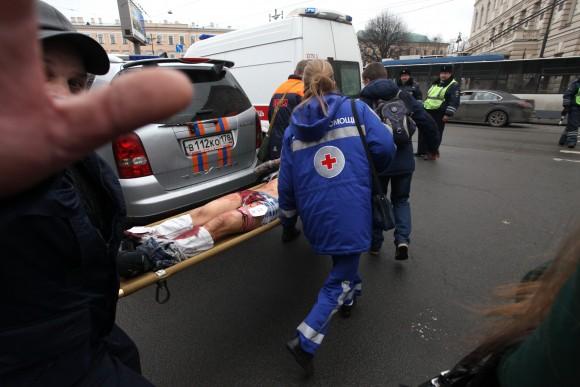ST. PETERSBURG—A bomb blast tore through a subway train deep under Russia’s second-largest city Monday, killing 11 people and wounding about 40 in a chaotic scene that left victims sprawled on a smoky platform. Hours later, anguish and fear rose again when police found and defused a shrapnel-packed explosive device at another St. Petersburg station.
There was no immediate claim of responsibility for the attack, which came while President Vladimir Putin was visiting the city, his hometown. In the past two decades, Russian trains and planes have been frequent targets of terrorism, usually blamed on Islamic terrorists.
News reports said police were searching for two suspects, and Russian state television showed a photo of one suspect wearing what appeared to be a skullcap characteristic of Russia’s Muslim regions.
The Investigative Committee, the country’s top criminal investigation body, said it had begun a probe based on the assumption that it was terrorism but added that other possibilities were being considered.






